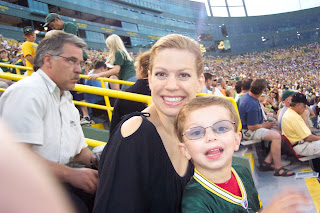When you're the father of two little people, you generally don't get a chance to enjoy as much cinema as you'd like. That said, there were a pair of movies that I really enjoyed this past month. One of them was available by the miracle of Netflix, and the other one was viewed through the traditional means of a theater. The films were dissimilar except for one common theme -- they both had Minnesota as a backdrop. The first film was "Juno" written and directed by Diablo Cody. I'm sure you all know about her background so I won't go into that, but suffice to say that this was the best movie I've ever seen that was written by a woman who rubbed her pubis mound on my leg for $10. 'Nuff said. The main character Juno, played by Ellen Page, was adorable. I haven't fallen for a young female character like that since Parker Posey in "Party Girl". The witty dialogue (courtesy of Cody), and Juno's relationships with her friends, parents and boyfriend (played by "Arrested Development" co-star Michael Cera), had a very authentic and hopeful feel. Taking the would-be tragic premise of teenage pregnancy and turning it on its head, the film's exploration of this theme was phenomenal. By no means did it glorify the decisions or take lightly the subject matter, but Juno's attitude toward her plight and the way she took people's attitudes in stride gave the whole film an optimistic feel.
Another film that I recently watched as "Sweetland" directed by Ali Selim, who won a Spirit Award for Best Independent Film in 2007. I don't know what connection Selim had to Minnesota, but he captured the setting (rural Minnesota during the 1920s) perfectly. The story was about an immigrant Swedish farmer who orders a mail-order bride to bring to his homestead in Minnesota. Once she gets there, they realize that she isn't Swiss but German, which is an issue since the U.S. had just finished a war with Germany and there was a great deal of prejudice against German immigrants. The movie's themes about ignorance, intolerance, perseverance and love made this a memorable film. The life that these two farmers created, after being thrown together in tough circumstances, gives everyone hope in a more complicated but equally prejudiced society today. I'm not sure there are many connections between these two films, but I think the one that stands out is this: there is an underlying moral code that we need to live by. Not one that's dictated by organized religion, or the expectations of others, but a real, tangible, understood set of codes that we live by in the face of obstacles and life's trials. Our winters in the heartland make us stronger mentally and force us to rely on one another. Maybe we have more time to consider our place and our body of work that we leave behind, but regardless of why, those values act as a bedrock that a lot of us rely upon when tough circumstances arise.


